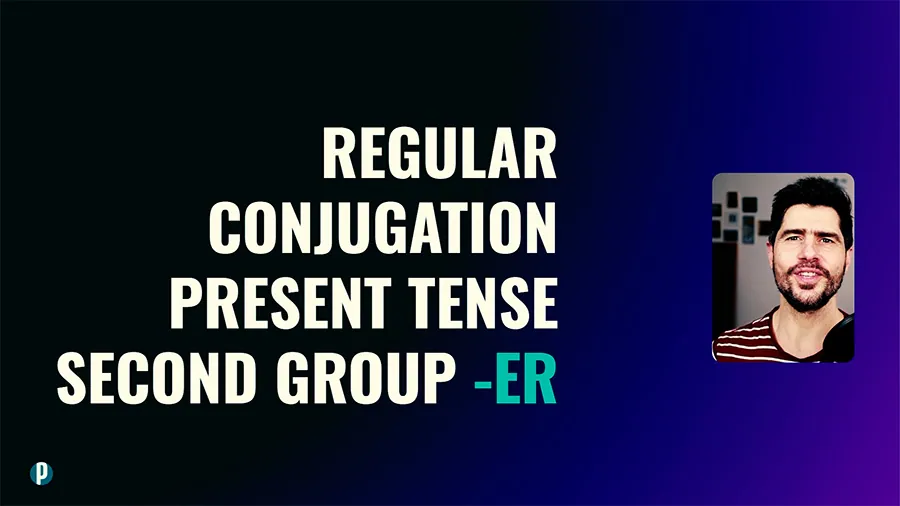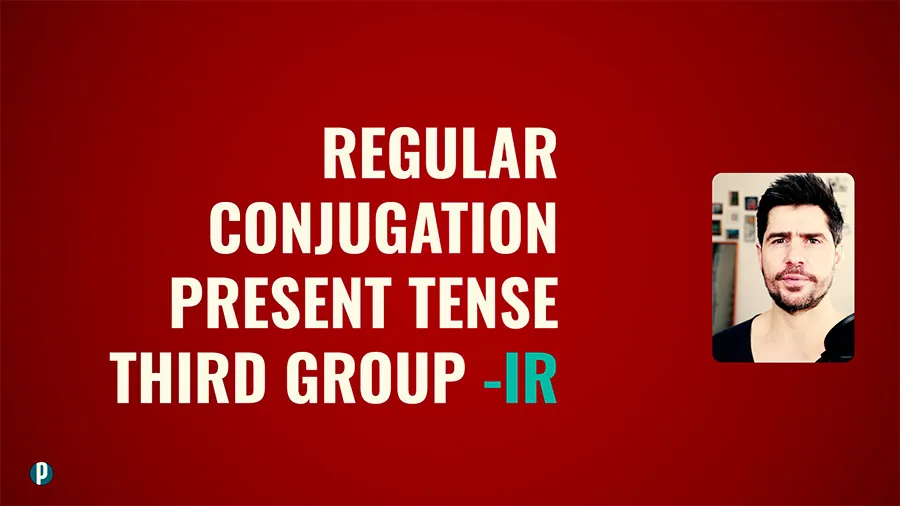葡萄牙語規則動詞現在式
葡萄牙語動詞確實比英語動詞更難學。作為一種羅曼語系語言,葡萄牙語並不缺乏需要記錄的動詞形式。
Fortunately, there are plenty of regular verbs as well, that is, verbs following a regular pattern concerning their conjugation. This means that you can learn and apply a conjugation “formula” that works with any regular verb. Neat.
在葡萄牙語中,規則動詞分為 3 個變形組:
| 1st conjugation: -AR (Acordar) | 2nd conjugation: -ER (Mexer) | 3rd conjugation: -IR (Partir) | |
| Eu | acordo | mexo | parto |
| Tu | acordas | mexes | partes |
| Ele, ela, você | acorda | mexe | parte |
| Nós | acordamos | mexemos | partimos |
| Vocês | acordam | mexem | partem |
| Eles, elas | acordam | mexem | partem |
接下來,我將引導您更詳細地了解結合模式。也就是說,我們研究了一些有時在現在式第一人稱中發生的細微拼字調整。請繼續閱讀。
這是一篇類似的文章 past tense: 葡萄牙語規則動詞過去式.
常規共軛
若要變位任何現在式的規則動詞,請刪除 不定式的結尾 – 或者 –ar, –er, 或者 –ir – 並在字幹上加上以下字尾(以粗體標示):
| 1st conjugation: -AR (Pensar) | 2nd conjugation: -ER (Vender) | 3rd conjugation: -IR (Abrir) | |
| Eu | penso | vendo | abro |
| Tu | pensas | vendes | abres |
| Ele, ela, você | pensa | vende | abre |
| Nós | pensamos | vendemos | abrimos |
| Vocês (vós)* | pensam (pensais) | vendem (vendeis) | abrem (abris) |
| Eles, elas | pensam | vendem | abrem |
| Other commonly used regular verbs | ficar, andar, falar, chegar, costumar, gostar, morar | comer, beber, querer, dever, correr, viver | partir, existir, sentir, dormir |
* 在現代葡萄牙語中,2人稱複數和3人稱複數共享相同的動詞形式。您偶爾可能會聽到過時的版本(上表中的括號內)與代名詞結合使用 vós. 隨著它的使用變得越來越少,我認為你不應該費心去學習它。
細微的拼字調整
裡面有幾個動詞 -ir 其共軛遵循上述模式的基團 除了第一人稱 – 這些動詞包含 e 或者 一個 o 在他們的莖中。
所以 e 和 o 變得 i 和 u (分別)以第一人稱。這裡有一些例子:
| e to i | |
| despir | eu dispo, tu despes, ele despe, etc. |
| mentir | eu minto, tu mentes, ele mente, etc. |
| preferir | eu prefiro, tu preferes, ele, prefere, etc |
| o to u | |
| cobrir | eu cubro, tu cobres, ele, cobre, etc. |
| dormir | eu durmo, tu dormes, ele dorme, etc. |
| tossir | eu tusso, tu tosses, ele tosse, etc. |
另外,如果一個莖 -er 或者 -ir 動詞以 -c, -g, 或者 –gu,這些輔音變為 -ç, -j, 和 g 分別以現在式的第一人稱(以保留原始子音*):
| c to ç | |
| conhecer | eu conheço, tu conheces, ele conhece, etc. |
| parecer | eu pareço, tu pareces, ele parece, etc. |
| g to j | |
| fugir | eu fujo, tu foges, ele foge, etc. |
| agir | eu ajo, tu ages, ele age, etc. |
| gu to g | |
| conseguir | eu consigo, tu consegues, ele consegue, etc. |
| seguir | eu sigo, tu segues, ele segue, etc. |
* 了解更多有關葡萄牙語音系和拼字聲音模式的資訊: 歐洲葡萄牙語發音 – 葡萄牙語音系和拼字聲音模式完整指南.
你想學的10個非常規動詞
現在式確實有很多規則動詞(第一組動詞是迄今為止最大的)。然而,一些最廣泛使用的葡萄牙語動詞恰好是不規則的。
以下是 10 個您應該熟記的葡萄牙語不規則動詞:
| ser (be) | sou, és, é, somos, são |
| estar (be) | estou, estás, está, estamos, estão |
| ter (have) | tenho, tens, tem, temos, têm |
| haver (there is) | há |
| dar (give) | dou, dás, dá, damos, dão |
| pôr (put) | ponho, pões, põe, pomos, põem |
| ir (go) | vou, vais, vai, vamos, vão |
| fazer (do, make) | faço, fazes, faz, fazemos, fazem |
| poder (can) | posso, podes, pode, podemos, podem |
| saber (know) | sei, sabes, sabe, sabemos, sabem |
讀書小竅門! 說到廣泛使用的動詞。以下是一些可以讓您更好地使用葡萄牙語的讀物:
• 葡萄牙語必知不規則動詞
• 充分利用葡萄牙語動詞「Ficar」:用法一覽表和詞形變化
• 葡萄牙語動詞“Haver”以及您用它所說的所有內容
• 葡萄牙語動詞“Dar”:用法和慣用表達
• 葡萄牙語動詞 Ser 與 Estar:如何以及何時使用其中之一

Olá! I'm Pedro and I'm your Portuguese teacher.
Learning European Portuguese? Portuguesepedia is an all-in-one platform providing a wealth of learning resources, from bite-sized video lessons to immersive idiomatic dips. Perfect your pronunciation and listening comprehension with listening drills and solidify your grammar with in-depth articles. Start your Portuguese journey today!
Share this article
Get my guide "Key Strategies to Learn Portuguese" for FREE.




